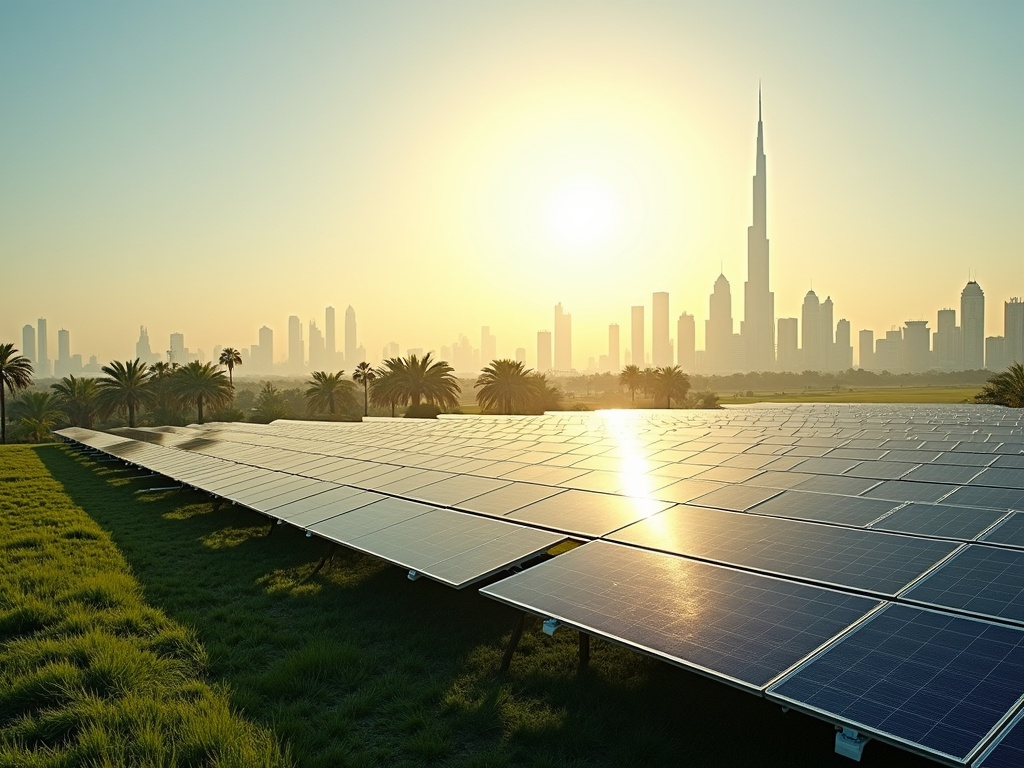The Role of Dubai’s Renewable Energy Exports in Global Markets

Dubai is strategically positioning itself as a key player in the renewable energy sector, exporting sustainable energy solutions that hold significant promise for global markets. By investing heavily in solar, wind, and other renewable technologies, Dubai not only aims to reduce its carbon footprint but also to cater to the growing global demand for clean energy. This article delves into the pivotal role Dubai plays in renewable energy exports and its implications for both local and international markets.
Dubai’s Commitment to Renewable Energy

Dubai has made remarkable strides towards becoming a leader in renewable energy, with its ambitious Clean Energy Strategy 2050 aimed at diversifying its energy sources. The emirate plans to produce 75% of its total energy from clean sources by 2050, significantly reducing its reliance on fossil fuels. This commitment is reflected in several key initiatives:
- Mohammed bin Rashid Al Maktoum Solar Park: One of the largest solar parks in the world, projected to generate 5,000 megawatts by 2030.
- Investment in Technological Innovations: Dubai is investing in advanced solar technologies, including concentrating solar power (CSP) and photovoltaic (PV) systems.
- Regional Partnerships: Collaborating with neighboring countries to share technological advancements and foster regional energy security.
These initiatives reflect Dubai’s broader goals to enhance energy security, create green jobs, and position itself as an environmentally friendly city on the global stage.
Impact on Global Renewable Energy Markets

Dubai’s foray into renewable energy exports has significant implications for global markets. Its geographical location between Europe, Asia, and Africa provides a unique advantage for exporting renewable energy solutions. The increase in renewable energy exports is primarily driven by:
- Meeting Global Energy Needs: As countries strive to meet their energy demands sustainably, Dubai can provide low-cost, renewable solutions.
- Influencing Market Prices: Increased Dubai exports can lead to competitive pricing in the renewable sector, benefiting buyers worldwide.
- Encouraging Investments: The emirate’s focus on renewables is drawing investments not only within its borders but also from international stakeholders interested in tapping into the emerging renewable market.
These factors position Dubai as a crucial supplier in the global renewable energy market, stimulating economic growth while promoting environmental sustainability.
Technological Innovations and Export Strategies
Innovation is a cornerstone of Dubai’s renewable energy strategy. The emirate is investing in cutting-edge technologies to enhance efficiency and reduce costs in renewable energy production. Key aspects of this strategy include:
- Smart Grid Technologies: Enhancing energy distribution efficiency through advanced grid management systems.
- Battery Storage Solutions: Developing energy storage technologies to balance supply and demand, particularly for solar energy.
- Exporting Expertise: Dubai aims to share its technological advancements with other nations through collaborations and training programs.
This level of technological engagement not only supports Dubai’s local initiatives but also promotes its role as a knowledge hub for renewable energy across borders.
Global Collaborations and Partnerships
Dubai’s exit strategy into renewable energy exports involves forging alliances with global firms and organizations. These partnerships help enhance its capabilities and market reach, allowing for the sharing of technology and expertise. Significant areas of collaboration include:
- Joint Ventures: Establishing partnerships with international energy firms to undertake large-scale renewable projects.
- Research and Development: Collaborating with universities and research institutions to pioneer sustainable technologies.
- Policy Alignment: Working with international bodies to ensure policies are conducive to renewable energy investments.
By actively participating in the global dialogue on energy sustainability, Dubai is solidifying its position as a leading exporter of renewable energy solutions.
Conclusion
As Dubai continues to advance its renewable energy agenda, its role in the global markets is expected to grow substantially. The emirate’s commitment to innovative technologies, strategic partnerships, and sustainable practices positions it as a significant contributor to the global transition towards clean energy. Through these efforts, Dubai is not just enhancing its economic prospects but also playing a vital role in combating climate change, making a positive impact on a global scale.
Frequently Asked Questions
1. What renewable energy sources does Dubai focus on?
Dubai focuses on solar, wind, and other renewable energy technologies, with significant investments in solar parks and wind farms.
2. How does Dubai’s geographical location benefit its renewable energy exports?
Dubai’s strategic location between Asia, Europe, and Africa provides easy access to major energy-consuming markets, facilitating efficient exports.
3. What is the Mohammed bin Rashid Al Maktoum Solar Park?
It is one of the largest solar parks globally, expected to produce 5,000 megawatts of energy by 2030, serving as a flagship project for Dubai’s renewable energy ambitions.
4. How does Dubai ensure the sustainability of its energy solutions?
By investing in advanced technologies, smart grid systems, and battery storage solutions, Dubai enhances the efficiency and sustainability of its energy production.
5. What role does international collaboration play in Dubai’s renewable energy export strategy?
International collaboration enables Dubai to share technology, expertise, and best practices, enhancing its capacity to operate in the global renewable energy market.